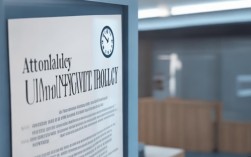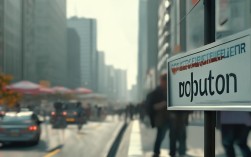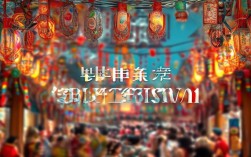什么是 "Experience Goods" (体验型商品)?
核心定义: Experience Goods (体验型商品/服务) 指的是那些消费者在购买和使用之前,无法完全确定其质量和价值的商品或服务,它的核心特点是,“体验”本身是价值的一部分,你只有真正去体验了,才能知道它好不好。

与 "Search Goods" (搜寻型商品) 的对比: 为了更好地理解,我们先看看它的反面——搜寻型商品。
-
Search Goods (搜寻型商品): 在购买前,消费者可以通过观察、比较、阅读信息来评估其质量。
- 例子: 衣服(可以看材质、做工)、手机(可以看参数、评测)、书籍(可以看目录、简介)。
- 特点: 质量相对“透明”,决策风险较低。
-
Experience Goods (体验型商品): 在购买前,质量信息是“模糊”或“未知”的,必须通过亲身体验来验证。
- 例子: 电影、餐厅、音乐会、理发、旅游、健身课程、心理咨询。
- 特点: 质量“不透明”,决策风险较高,口碑和评价至关重要。
在托福口语中的应用场景
"Experience goods" 这个概念可以巧妙地融入多种口语题型中,让你的回答更有逻辑性和说服力。
口语 Task 1: "Which would you prefer..." (二选一)
经常让你在两种体验或物品之间做选择,用 "experience goods" 的概念来组织答案会非常出彩。 示例:**
- "Do you prefer to watch movies at home or in a theater?"
- "Would you rather eat at a new restaurant or a familiar one?"
- "Some people prefer to take a vacation to a new place they've never been to. Others prefer to return to a place they've been to before. Which do you prefer?"
回答思路:
- 明确立场: "I would definitely prefer to watch movies in a theater because it's a classic example of an experience good."
- 解释概念 (可选但加分): "Unlike a book or a phone where you can check the specs, a movie is an experience good. You can't fully know if it's good or not until you actually watch it."
- 阐述理由 (分点):
- 理由 1: The overall atmosphere (整体氛围). "The experience isn't just about the movie itself. It's the big screen, the surround sound, and even sharing the reactions with the audience. This collective atmosphere is a huge part of the value, and you can't get that at home."
- 理由 2: The element of surprise (惊喜元素). "Since you can't be 100% sure about the quality, there's an element of surprise and excitement. It could be a fantastic blockbuster or an unexpectedly indie film, and that unpredictability is part of the fun."
- 理由 3: Social experience (社交体验). "Going to the theater with friends is a social activity. It's an experience we share, which makes it more memorable than just streaming a movie alone."
口语 Task 2: "Describe a place..." (描述类)
当被要求描述一个地方时,这个地方很可能就是一个 "experience good"。 示例:**
- "Describe a restaurant you enjoy going to."
- "Describe a popular tourist attraction in your country."
回答思路:
- 引入地点: "I'd like to talk about a small café near my university. It's a perfect example of an experience good."
- 描述为什么是体验型: "You can't judge it by its appearance from the outside. It looks pretty ordinary, but the experience you get once you're inside is what makes it special."
- 详细描述体验 (用感官细节):
- Visual (视觉): "The moment you walk in, you're greeted by the smell of freshly ground coffee and the sound of soft jazz music. The decor is cozy with warm lighting and bookshelves filled with novels."
- Auditory (听觉): "The baristas always remember your order and chat with you for a bit, which makes you feel like a regular."
- Gustatory/Olfactory (味觉/嗅觉): "Their signature drink, a lavender latte, is something you can't find anywhere else. The taste is a unique combination of floral and creamy."
- 总结感受: "So, the value of this café isn't just in the coffee; it's in the entire sensory and social experience. It's a place where you can escape from your studies and just relax, and that's why I love it."
口语 Task 3 & 4: "Integrated Speaking" (综合口语)
在听力或阅读材料中,如果出现一个关于新产品、新服务或新商业模式的讨论,"experience goods" 是一个非常棒的学术术语来概括和评价它。
场景示例:
- 阅读: 学校计划在图书馆开设一个咖啡厅。
- 听力: The student in the conversation supports the idea. He says the library can be a bit stressful, and a coffee shop would provide a much-needed "experience" – a place to take a break, socialize, and feel more relaxed.
如何用 "experience goods" 来回答: In the reading, the university proposes to add a coffee shop to the library to improve the student experience. The student in the conversation strongly supports this plan, and he essentially argues that the library environment is an experience good.
He explains that the current library experience is stressful and isolating. By adding a coffee shop, they are not just adding a product (coffee) but creating a new, more positive experience. This new experience would help students relax and socialize, making the library a more welcoming place overall. Therefore, the coffee shop would enhance the value of the library as an experience good.
核心词汇和短语
为了在口语中自如地使用这个概念,你可以积累以下词汇:
-
Nouns (名词):
- Experience good / service (体验型商品/服务)
- Atmosphere (氛围)
- Ambiance (氛围,更侧重情调)
- Sensory details (感官细节)
- The element of surprise (惊喜元素)
- Collective experience (集体体验)
- Unpredictability (不可预测性)
- Value proposition (价值主张)
-
Verbs (动词):
- To immerse oneself in... (沉浸于...)
- To soak up the atmosphere (感受氛围)
- To judge by... (根据...来判断)
- To evaluate the quality (评估质量)
- To enhance the experience (提升体验)
- To create a memorable experience (创造难忘的体验)
-
Adjectives (形容词):
- Immersive (沉浸式的)
- Unforgettable (难忘的)
- Unpredictable (不可预测的)
- Ambiguous (模糊的,指质量)
- Subjective (主观的,体验因人而异)
在托福口语中谈论 "experience goods",关键在于:
- 定义清晰: 用简单的语言解释它是什么,最好能和 "search goods" 做个对比。
- 举例生动: 用具体、个人化的例子(如一家特别的餐厅、一次难忘的旅行)来支撑你的观点。
- 描述细节: 不要只说“很好玩”,而是要描述为什么好玩,调动你的感官(看、听、闻、尝、感觉),描述氛围、互动和情感。
- 升华主题: 将体验与更深层次的价值联系起来,如社交、情感满足、个人成长等。
掌握了这个概念,你的口语回答将不再停留在表面,而是能展现出你思考的深度和逻辑性,给考官留下深刻印象,祝你考试顺利!











